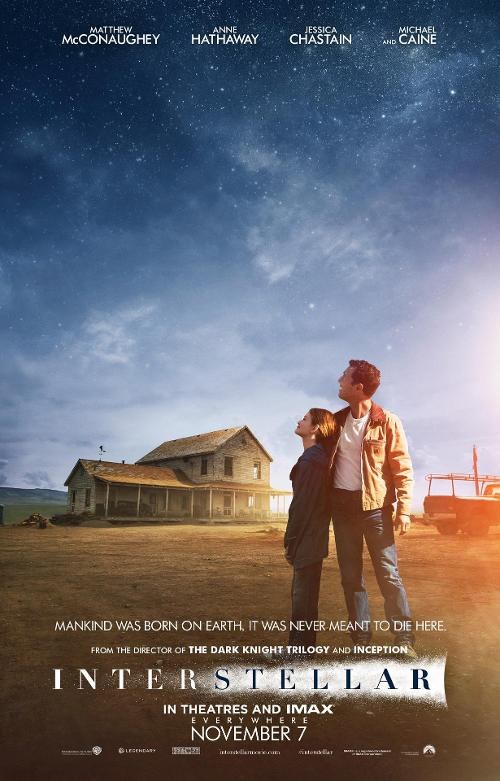Interview: 'Interstellar' Writer Jonathan Nolan: Real Space Exploration Is "F***ing Done, We Peaked!"
A couple weeks back I got a chance to talk to Jonathan Nolan, the brother of filmmaker Christopher Nolan and co-screenwriter of Interstellar. Jonah started developing Interstellar as a project for Steven Spielberg to direct, before getting sucked into the television world showrunning Person Of Interest for Bad Robot. Jonathan has also been making the transition into directing, helming the pilot of the HBO/Bad Robot television adaptation of Michael Crichton's Westworld (which we talk about briefly). Read all this and more in our Jonathan Nolan interstellar interview, after the jump.
Jonathan Nolan Interstellar Interview
Peter Sciretta: Hey, how's it going?
Jonathan Nolan: Going well. How are you doing?
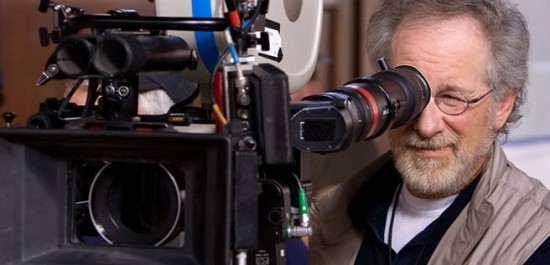 Question: I'm doing good. Okay, so I'm primarily interested in how this project has evolved over the years. 'Cause this has been a project long in the making. I first heard about this in I think June 2008 when Spielberg first got this idea from the Caltech talk. How did you get involved and what was that original pitch that Spielberg presented to you?Nolan: I presented it to him. He and Linda Obst and Kip Thorne, Linda's great friend, Kip Thorne, who's a legend in physics over at Caltech. Steven had wanted to do a science exploration film that was grounded in good physics. He wanted to get it right. No huge flights of fancy. More real, authentic. They had been working for several months fleshing out the ideas, you know, in general terms and looking for a screenwriter. So I came in and sat down with Steven. And he wanted to do a contemporary space exploration film. I said, Steven, if it was a contemporary space exploration film, it would be about 15 minutes long. And it would consist of the they all go in to the Appropriations Committee and quietly die, right? We don't do that anymore. It's f***ing done. We peaked. In the years when the anthropologists come down, they'll find a little polyester flag in the Moon and they'll say, f***, they almost made it. Right?
Question: I'm doing good. Okay, so I'm primarily interested in how this project has evolved over the years. 'Cause this has been a project long in the making. I first heard about this in I think June 2008 when Spielberg first got this idea from the Caltech talk. How did you get involved and what was that original pitch that Spielberg presented to you?Nolan: I presented it to him. He and Linda Obst and Kip Thorne, Linda's great friend, Kip Thorne, who's a legend in physics over at Caltech. Steven had wanted to do a science exploration film that was grounded in good physics. He wanted to get it right. No huge flights of fancy. More real, authentic. They had been working for several months fleshing out the ideas, you know, in general terms and looking for a screenwriter. So I came in and sat down with Steven. And he wanted to do a contemporary space exploration film. I said, Steven, if it was a contemporary space exploration film, it would be about 15 minutes long. And it would consist of the they all go in to the Appropriations Committee and quietly die, right? We don't do that anymore. It's f***ing done. We peaked. In the years when the anthropologists come down, they'll find a little polyester flag in the Moon and they'll say, f***, they almost made it. Right?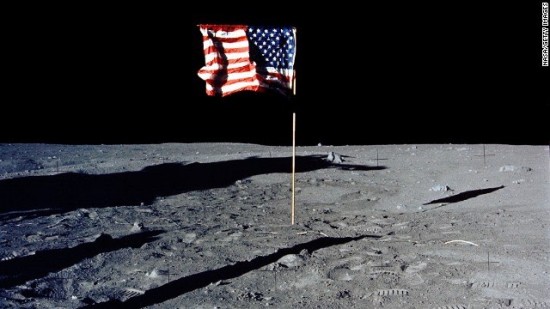 Question: Yeah.
Question: Yeah.
Nolan: Like they got so far. So that was 2006, 2007, so it was a somewhat misanthropic take on it. Probably not a great way to pitch it. But so I said, well, you know, it has to be set in the future. It has to be set in a future in which you understand, because that's the case and anyone who's looked into a realistic science and space exploration understands that we don't do it anymore. It's done. The Apollo missions were before we were kids and it's over. But that's not readily apparent to people. So you have to set it in a moment in the future in which that is readily apparent to people. And it's clear. So it was great fun working with Steven for a couple years on the project. And hammering out a script.
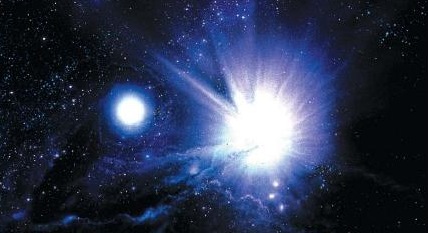 Question: So that was always the pitch that like it was set in the future where resources are, were our future's looking bleak?Nolan: Absolutely. I mean, look the reality is we stopped going to space because we're too f***ing wrapped up in whatever narcissistic bullshit, you know, as a sort of a collective. I mean, look, there's an awful lot of things that still need to be fixed here on Earth, right? You know, problems that never seem to go away. Poverty, disease and a lot of stuff that we turned our attention to that is a good thing. We're also just kind of sucked in the bullshit. I was talking downstairs, I grew up in Apollo space travel, we were promised jetpacks and f***ing teleportation and instead we got f***ing Facebook and Instagram. That's a bummer.
Question: So that was always the pitch that like it was set in the future where resources are, were our future's looking bleak?Nolan: Absolutely. I mean, look the reality is we stopped going to space because we're too f***ing wrapped up in whatever narcissistic bullshit, you know, as a sort of a collective. I mean, look, there's an awful lot of things that still need to be fixed here on Earth, right? You know, problems that never seem to go away. Poverty, disease and a lot of stuff that we turned our attention to that is a good thing. We're also just kind of sucked in the bullshit. I was talking downstairs, I grew up in Apollo space travel, we were promised jetpacks and f***ing teleportation and instead we got f***ing Facebook and Instagram. That's a bummer.
But we don't think of it in those terms. We think of ourselves as being the most magnificent, amazing universe ever and if we wanna go back to the Moon, sure, we could. It's like no, those guys are all dead or retired. We're not going back to the Moon. And if we wanted to, we'd have to spend billions of dollars and it would take years and years and years. We're just done. We're not doing that. We're out of that business. And so people don't think in those terms. We had to set the movie in the future in which that was abundantly clear.
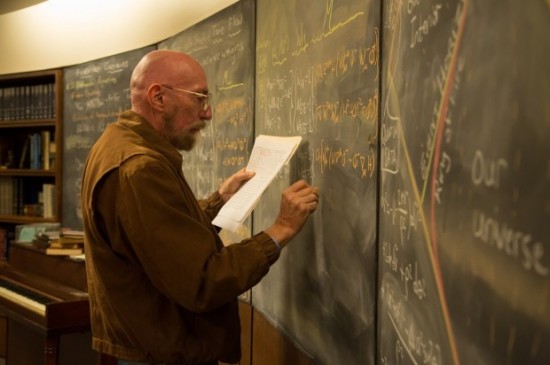 Question: Yeah. And the whole idea always had a wormhole of some kind?
Question: Yeah. And the whole idea always had a wormhole of some kind?
Nolan: Yeah, absolutely. That was one of the things that they, that Kip, you know, Kip's field is gravitation. Wormholes are a gravitational phenomena. Or imaginary gravitational phenomena as the case may be. And so the reality is if you wanna do a grounded space exploration film, one of the first things you have to do is throw out, you have to have a wormhole. Right? Because if it's in a remotely contemporary timeframe, we don't have a technology that could get us any further than our own solar system. Right? I mean, we're packets of water and protein. We're extremely fragile. Right? And if we travel in a spaceship for any longer than about a year of interstellar space, we'd be so fried with radiation that there would be nothing left of us. So we, you know, we're not going anywhere. That again, boring movie, right?
So you have to have a wormhole in order to, you need a shortcut to take you to a what's nice about a wormhole is that it's not only a shortcut, you know, by nature of the fact that a wormhole could not exist without some higher order of intelligence putting it there. The existence of one, this is one of the things I was fascinated by in the project, the very fact that the wormhole exists suggests...
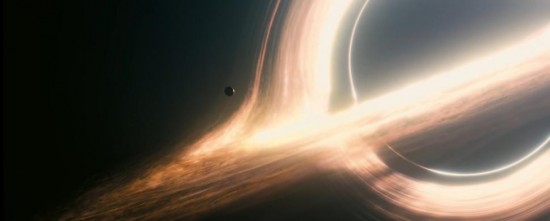 Question: That someone's trying to take us somewhere.
Question: That someone's trying to take us somewhere.
Nolan: Yeah.
After the jump, Jonathan Nolan talks about directing Westworld, Christopher Nolan's contributions to the script and more.,
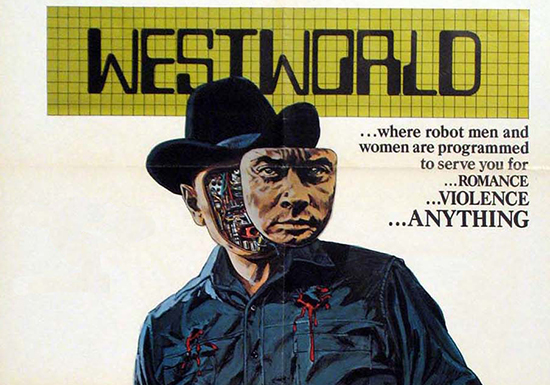 Question: You've been working on this for so many years before Chris got involved. Did you ever think about directing it yourself?
Question: You've been working on this for so many years before Chris got involved. Did you ever think about directing it yourself?
Nolan: Yeah, that conversation came up. It's only recently that I've sort of turned my attention full time to directing. And part of the reason why I wanted, I was very excited to get Chris to make this film is that I'm excited to make films, my wife and I just had a great experience producing and I was directing the Westworld pilot for HBO.
Question: Very excited for that.
Nolan: Yeah, it's fun. It's very cool. It's very dark. And I greatly love directing. But, you know, one of the great privileges of being able to work with Chris is he's a craftsman who can craft on the biggest possible scale. And at this point in my career would not have had the audacity to make the film in the way that he did. Which is to say he just f***ing built, he just made it in reality. This is, there are some filmmakers content to film in like a green closet with a motion control rig. And there's some beautiful films that have been made that way. I mean, really, like it's just about whatever toolbox works for you. But what I love about working with Chris is that, you know, his, the way that he understands making film is to build as much reality in front of the camera as possible. So the audience feels it. And so you find yourself standing on a set that is just impossibly large. Where when you call action, I remember climbing four stories up a flight of scaffolding to get into a spaceship with Chris and Matthew McConaughey. And when Chris yelled action, everything went dark and through the windows suddenly there was f***ing space. He's projecting these plates that D Neg had rendered in London and shipped over and you project them. And then after a couple of seconds, the whole f***ing thing starts shaking. That's when you know you're in a Chris Nolan movie. The illusion is complete even when you're standing on set.
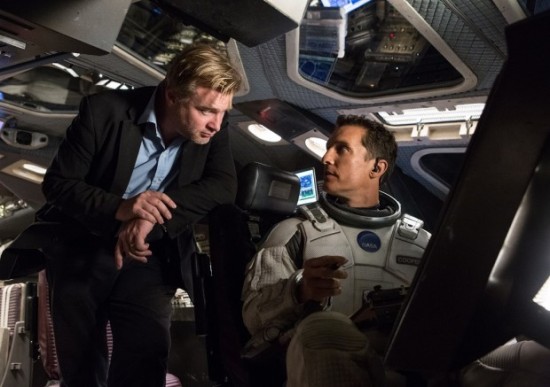 Question: So when your brother gets involved, he's said that he took your screenplay and brought his own ideas that he had into it.Nolan: Sure.Question: But I haven't heard what those ideas were. What did he bring to the story that we see now?Nolan: The nature of our collaboration is just you're wise not to try to unpack too carefully or pick apart who did what or who added what. But Chris and I had both since we were kids thought about this kind of film. And he brought to it a perspective on what if you're reducing it to anything, you realize the second act of the film is very much composed of his ideas. And the things that I was so excited in the draft, in the original conception of the film are still very much alive in terms of it being about a guy and his kids.
Question: So when your brother gets involved, he's said that he took your screenplay and brought his own ideas that he had into it.Nolan: Sure.Question: But I haven't heard what those ideas were. What did he bring to the story that we see now?Nolan: The nature of our collaboration is just you're wise not to try to unpack too carefully or pick apart who did what or who added what. But Chris and I had both since we were kids thought about this kind of film. And he brought to it a perspective on what if you're reducing it to anything, you realize the second act of the film is very much composed of his ideas. And the things that I was so excited in the draft, in the original conception of the film are still very much alive in terms of it being about a guy and his kids.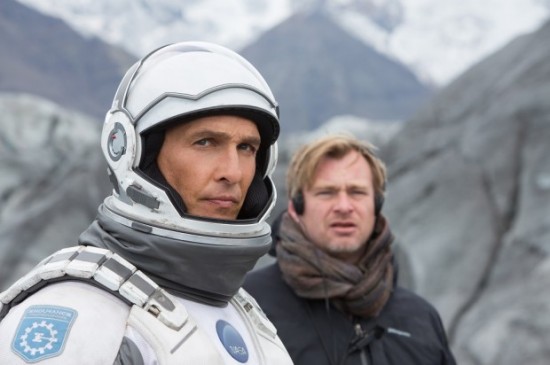 Question: So that wasn't something he brought, that was something that was always there.Nolan: Well yeah, but this is the great thing about collaborating, Chris is the Devil's in the details. So yes, that idea was there from the beginning in terms of Cooper and Murphy. But my brother always brings his own unique perspective to things and the ways to sort of ratchet up that, the tension and stakes of their relationship. From the beginning the idea was you have this massive scope of the film. You have to ground it in a very intimate, very small, recognizable, emotional truth, which was this relationship between Cooper and his kids.
Question: So that wasn't something he brought, that was something that was always there.Nolan: Well yeah, but this is the great thing about collaborating, Chris is the Devil's in the details. So yes, that idea was there from the beginning in terms of Cooper and Murphy. But my brother always brings his own unique perspective to things and the ways to sort of ratchet up that, the tension and stakes of their relationship. From the beginning the idea was you have this massive scope of the film. You have to ground it in a very intimate, very small, recognizable, emotional truth, which was this relationship between Cooper and his kids.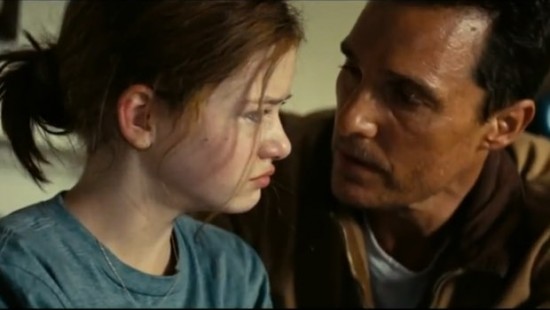 Question: It definitely feels like the most emotional film that he has made so far.
Question: It definitely feels like the most emotional film that he has made so far.
Nolan: Sure.
Question: I talked to so many people who said that they were brought to tears. I had something in my eye. [laughs] I also have some questions about the character names in the movie, Cooper, Brand, Doyle, Getty, is there anything to those or are they just...?
Nolan: Some of them, yes, some of them, no. Some with character names, character names is tricky ones. Sometimes it's about the sound and feeling of it. And sometimes there's a sort of a deeper connection under there to ideas. I've always been a little turned off by character names that are obviously references to other things. Yeah, that's for the audience to figure out.
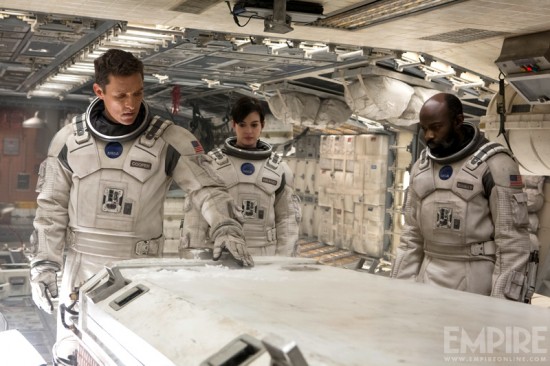 Question: I'm always interested in like the things that we might not notice, but that the details that the screenwriter has put in there, is there any Easter eggs or any anything that people might not see in the first viewing that you might wanna spotlight?
Question: I'm always interested in like the things that we might not notice, but that the details that the screenwriter has put in there, is there any Easter eggs or any anything that people might not see in the first viewing that you might wanna spotlight?
Nolan: That's why they gotta watch it a second time. There weren't spoilers for it.
Question: Everybody's bought two tickets already.
Nolan: That's the pleasure of it. Good to hear. That's a very good question. You need to see the film again and see how, see, I'm constantly finding layers of it. Things that I like forgot about, I put in there or things that Chris put in there that he never told me about. I mean, this is the great fun of collaborating with Chris and Nathan Crowley, our Production Designer and all the incredible, department heads who work and craftsman who work on these films is there's always another layer, another level in there.
Question: Well thank you so much.
Nolan: Thank you. Yeah, an absolute pleasure.

